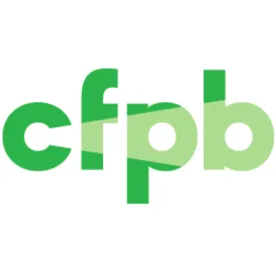On Thursday, September 22, 2022, the Consumer Financial Protection Bureau (CFPB) issued a new request for information (RFI) regarding mortgage servicing, potentially opening the door for much-needed regulatory reforms. The RFI is focused on inquiries regarding refinances and, more generally, ways to streamline short and long-term loss mitigation options. It includes 37 specific requests, allowing 60 days for the public to submit comments and responses.
With respect to refinances, the CFPB broadly indicates that it is trying to “better understand what barriers may prevent consumers from accessing falling interest rates and what interventions could lower those barriers, particularly for borrowers with smaller loan balances.” On the forbearance and loss mitigation front, the CFPB recognizes the success of many of the COVID-19-era loss mitigation programs that have been put in place and, therefore, is “requesting comment on the actions it or others can take or should consider taking to spur automatic and streamlined short and long-term loss mitigation offers for borrowers with mortgages impacted by temporary financial hardship more generally.” Additionally, the RFI notes that the CFPB is looking for feedback on “what features of these COVID-era short and long-term loss mitigation programs should be made more generally available to borrowers, and in particular, if there are ways to automate and streamline the offering of short and long-term loss mitigation solutions.”
This is a significant opportunity for the mortgage servicing industry to provide the CFPB with feedback on ways to improve the regulatory framework moving forward. Particularly as many across the industry are now reflecting on the lessons that can be learned from the pandemic, this is a clear signal that the CFPB is doing the same and that meaningful change could still happen at some point in the future. For example, the RFI implies that borrowers impacted by natural disasters should be able to receive quick and efficient relief, much like borrowers who have been impacted COVID-19 over the last 2.5 years. This is encouraging (albeit long overdue), and hopefully a sign that the mortgage servicing rules will once again appear on the CFPB’s published regulatory agenda in the near future.
Nevertheless, this RFI offers good reason for optimism and is the first formal opportunity for the industry to opine broadly on the mortgage servicing rules since early 2015, despite a handful of notable movements since that time. We will continue to publish specific thoughts in the coming weeks on lessons we’ve observed from the pandemic and how the default servicing areas of Regulation X (early intervention, continuity of contact, loss mitigation) can be improved. We will also detail specific areas of the law that may warrant some attention.
Broadly speaking, though, the pandemic has shown us that consumers and industry can all benefit if the following principles are kept in mind:
Simplicity
The success of COVID-19 forbearance programs shows that when things are kept simple and straightforward the industry can implement them consistently and accurately, and consumers can better understand what their rights are and what might be available. This same concept should be translated into the loss mitigation regulatory framework: Heavy-handed procedural requirements — while well-intentioned — may unnecessarily impede the likelihood of achieving the desired outcome. For example, navigating what constitutes a loss mitigation application, when an application is considered “complete,” and how to handle retention vs. non-retention options can all be so nuanced and complex that it may actually do more harm than good.
Flexibility
Requiring borrowers to submit complete applications before they can receive assistance is often too high of a burden and may prevent some borrowers from ever getting the help they qualify for. Prolonged document chase processes with significant back and forth may increase delinquency and result in the accumulation of additional fees and charges, and at times may be too onerous for a struggling homeowner to ever navigate. Allowing servicers the flexibility to offer assistance quickly and based upon minimal information proved to be incredibly effective at transitioning borrowers from forbearance into more permanent solutions. Options like the deferral, partial claim, or streamline modification have been critical to get COVID-19-impacted borrowers back on track with their mortgage payments.
Consistency
This theme encompasses a few different ideas. First, consumers do not benefit when the law is ambiguous. Although different companies should be allowed to implement an obligation in different manners, we all should have certainty as to what is required. Clear guidelines and rules are important to promote this much-needed consistency. Consistency also means ensuring that the law applies the same standard to similarly situated consumers. For example, why do we have COVID-19-specific exceptions to the loss mitigation provisions but nothing for borrowers impacted by natural disasters? The lack of action has likely harmed consumers impacted by a natural disaster who should be able to benefit from the same exceptions and protections that the CFPB instituted for COVID-19-impacted borrowers. And finally, the industry deserves a regulatory framework where all of the federal government, including other agencies and the GSEs, understands and agrees what is required of servicers. It is unacceptable that there continue to be conflicts between what is expected by the agencies and GSEs and the existing laws that should form the baseline.




 />i
/>i

